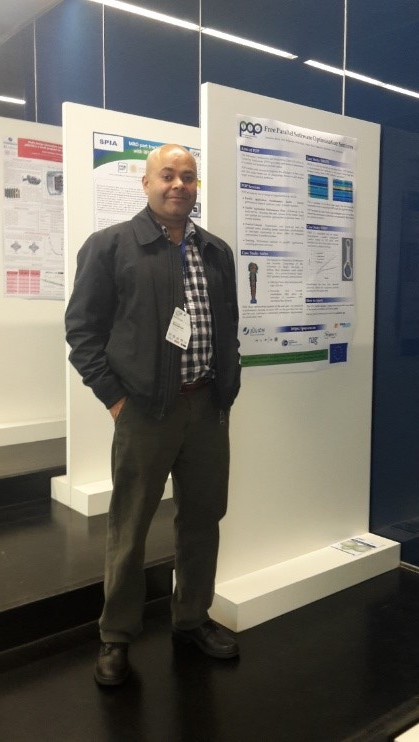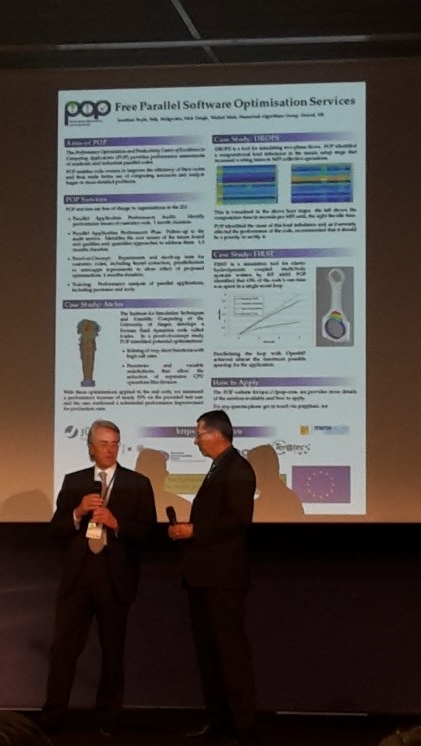As a member of the Performance, Optimisation and Productivity (POP) service I recently attended the International Computer Aided Engineering Conference (http://www.caeconference.com/) in Parma, Italy, where I presented a poster with case studies on how engineering codes have benefited from the POP service.
The main theme of the conference was simulation based engineering and science, with the aim of increasing industrial productivity. Simulation plays a key role in the engineering workflow where the stages are automated as much as possible to increase efficiency, speed, safety and quality of engineering products and to reduce costs. Engineering workflows are generally comprised of three stages: pre-processing, simulation and post-processing. The simulation stage generally takes the most time. Akin Keskin of Rolls Royce quoted William H. Press, author of Numerical Recipes (1998) which is a classic engineering textbook:
“Simulation and mathematical modelling will power the 21st century the way steam powered the 19th”
He also discussed the importance of simulation and the adoption of HPC. He presented the increased power and the decreased cost of HPC systems as well as the advances in numerical algorithms has increased the adoption of simulation techniques and the advantages this brings:
- Ability to explore the design space by running more simulations;
- Increased resolution to improve understanding of engineering phenomena;
- Ability to run more costly multi-physics simulation and virtualising engineering products before manufacturing to reduce risks and costs.
The CAE conference was attended by many engineering companies such as, E4 Computer Engineering a HPC integrator based in Italy who discussed the importance of using HPC compared to traditional desktop machines. The large vendor codes from Ansys, CD-Adapco, COMSOL as well as the open source OpenFOAM suite of codes can run on HPC clusters to reduce time to solution and provide increased resolution as more memory is available. Whilst desktop machines may be viable for now, increased understanding through higher fidelity simulations will be required sooner rather than later and HPC clusters are a viable solution to achieving better engineering simulations.
The levels of parallelism in modern HPC clusters are increasing and for engineering codes to efficiently use HPC resources, they will need to be written in an efficient manner. The POP service can help engineering companies get the best return on investment and increase their productivity.
Below left is a picture of me standing next to the poster that was submitted and below right the POP poster being presented during the poster competition. The POP poster didn’t win the competition, but has certainly created a lot of interest from the engineering companies who develop parallel codes.


Wadud Miah (Numerical Algorithms Group)
